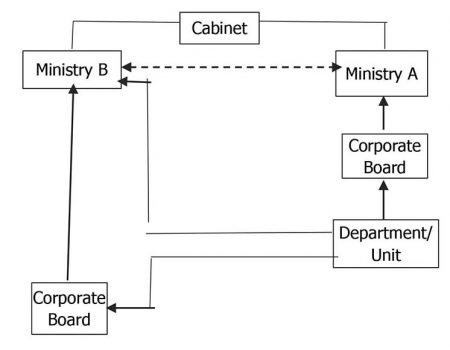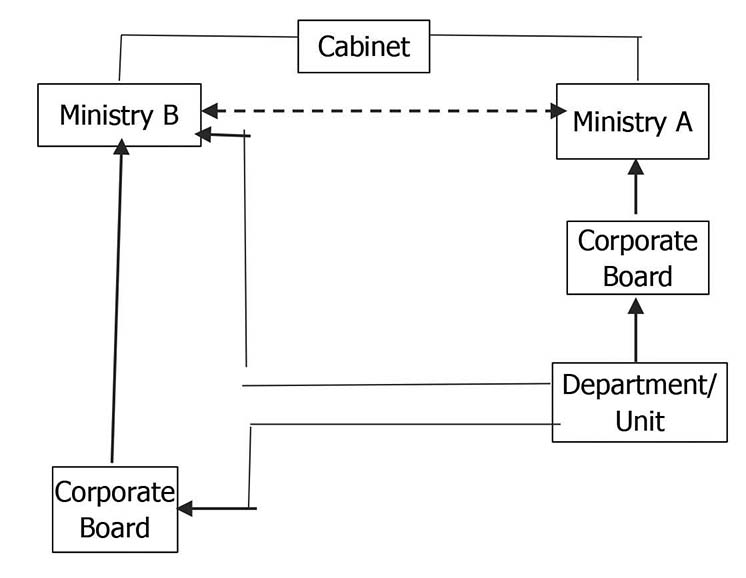Dear Editor,
An interesting constitutional conundrum would appear to have developed quite recently.
A public sector corporation which reports quite logically to its oversight ministry (A), has either assumed authority or has been (illogically) authorised to give instructions to the duly annointed political head of another ministry (B), leaving the attentive to ponder about the appropriateness of the accountability relationships involved.
The following would appear to be the coincidental construct.
 It is assumed that constitutionally, while some ministries would logically enjoy some priority of importance over others, it is left to be ascertained as to whether one ministry can instruct another in relation to its policies as against offering advice therein.
It is assumed that constitutionally, while some ministries would logically enjoy some priority of importance over others, it is left to be ascertained as to whether one ministry can instruct another in relation to its policies as against offering advice therein.
Whichever is the case, it leaves for enquiry how a subsidiary component of that decision-making hierarchy can instruct the highest level of a ministry, and therefore how compliable is that inferred authority.
While all the above may just have been coincidental, it still seems a sufficiently contradictory organisational construct to attract the attention of the interpreters and practitioners of the Constitution.
Yours faithfully,
E B John

